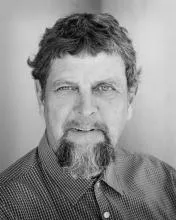

Changing Geographies of Food
Oct. 15, 2014
Diana Liverman
We are living in a new planetary epoch - the Anthropocene - in which humans are changing the environment at a global scale. Dr. Liverman leads us on an exploration of how our everyday food choices contribute to these changes and are in turn affected by them in an increasingly connected world. How can we ensure food security for all in a world where agriculture competes for land and water with cities, industry, and ecosystems; where climatic or economic upheaval in one corner of the world triggers food price rises in another; and where billions are hungry while others are overfed? This lecture will assess the state and geographies of our food system, tracing trends in environment, food production, trade and consumption, and identifying choices that can promote a more sustainable future for food around the world.

Tucson: City of Gastronomy, Hub for Food Diversity
Oct. 22, 2014
Gary Nabhan
This presentation will highlight why Tucson has been nominated to become the first UNESCO-recognized Global City of Gastronomy in North America, and why it has become a nursery grounds for rediversifying the American diet as means to provide farmers with better livelihoods, celebrate our multi-cultural food heritage, and combat obesity and diabetes. The antiquity of agriculture and diversity of desert food traditions in the Tucson Basin is unparalleled within any metro area in the entire United States, but many of Tucson's current inhabitants remain vulnerable to hunger, food insecurity and nutrition-related diseases. We will suggest how this collaboration among the city, county, university and local non-profits and food micro enterprises can be used as a means to leverage positive change to enhance food security and alleviate poverty in the eight USDA- designated food deserts within Metro Tucson. It will also discuss how enhancing the diversity of food choices available to our community and others relates to issues of food justice and food democracy.

We Are What We Eat
Oct. 29, 2014
Maribel Alvarez
Every loop in our social fabric involves food. When a friend passes or a baby is born, we gift the family with food. We gather to celebrate, reflect, and worship with food: wings on Super Bowl Sunday, birthday cake, Thanksgiving turkey, pozole de trigo for the Día de San Ysidro, Challah bread for the Sabbath. Even our everyday meals – how we prepare, serve and consume them – tell a story of who we are. Did you have cereal, miso soup, croissants, pao de queijos, or Vegemite on toast for breakfast this morning? As one of the most enduring and persuasive symbolic code systems, food is an object through which humans construct the powerful imaginary of belonging, nostalgia, safety, pleasure and loyalty, which in turn construct our fundamental ideas of home, family, nation and community. In this talk, Dr. Alvarez provides an anthropologist’s perspective on food by exploring how we define ourselves – and others – through our daily food habits, traditions, and practices.

Edible Roman Empire
Nov. 5, 2014
Emma Blake
What lessons can we learn about food and foodways from the Roman Empire? A surprising amount. The Roman Empire encompassed some 50-60 million people, transforming the lives of its conquered populations. Wheat, olive oil, wine, and fish paste were mass-produced and transported thousands of miles, undercutting local food traditions. Agribusiness and monoculture supplanted independent farmers. Crops were harvested unsustainably. But at the same time many people benefited from greater food security than ever before. Who were the winners and losers in this, the first globalized food system? For example, in North Africa Roman hydraulic technology made the arid pre-desert farmable, but disrupted the herding routes of nomadic pastoralists. Drawing on cutting edge archaeological techniques and the latest discoveries, Dr. Blake weighs the costs and benefits of the Roman Empire on nutrition and life expectancy as well as on the environment and culinary heritage. These insights into ancient foodways may provide guidance for our own future.

Food for Pleasure, Vitality, and Health
Nov. 12, 2014
Victoria Maizes
Gluten-free, sugar-free, vegan, organic, whole, raw, grass-fed, pro-biotic, non-GMO, no-carb, low-carb, slow-carb, Atkins, Paleo, Mediterranean. With so many diets and options for selecting food, the best choices for our health are unclear and only seem to get more complicated. Why are so many people now avoiding dairy and wheat – foods once considered mainstays of the American diet? Why are eggs – once considered good, then considered bad – now considered good again? Why are food allergies on the rise? Are people really starting to eat dirt on purpose? Join Dr. Victoria Maizes as she draws on current science to demystify the latest diet trends and offer strategies for selecting food for pleasure, vitality, and health.

